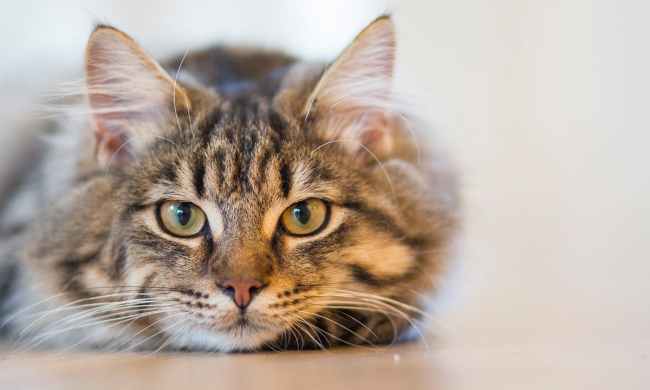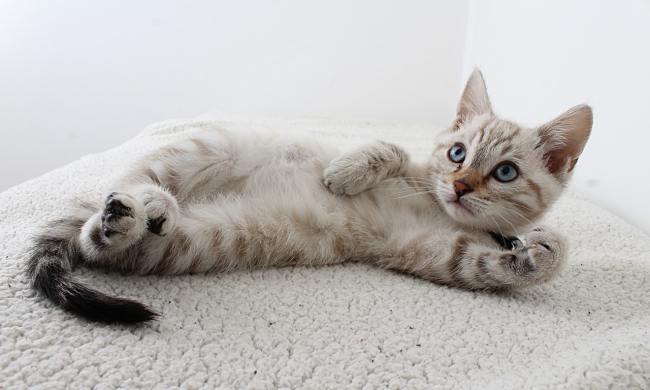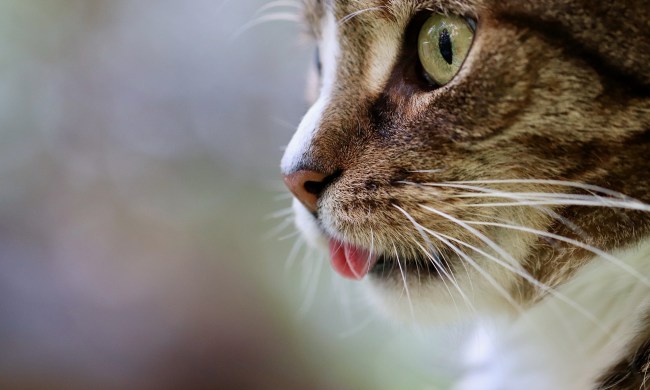You love your kitty. Sometimes, that means agreeing to send them in for cat surgery. Whether it’s a standard spay or neuter procedure, necessary dental work, or something more worrisome like removing a cancerous tumor, you’ll want to ensure you give your furry friend some extra TLC post-operation.
Your feline friend may also need you to be patient with them. Cat behavior after surgery can vary from pet to pet, but they may be slightly shyer, lethargic, or easily irritated for a while. The good news is that your cat should go back to normal — and hopefully wind up as an even healthier version of themselves soon. Knowing what to prepare for can ensure your cat feels safe, loved, and comfortable after surgery.
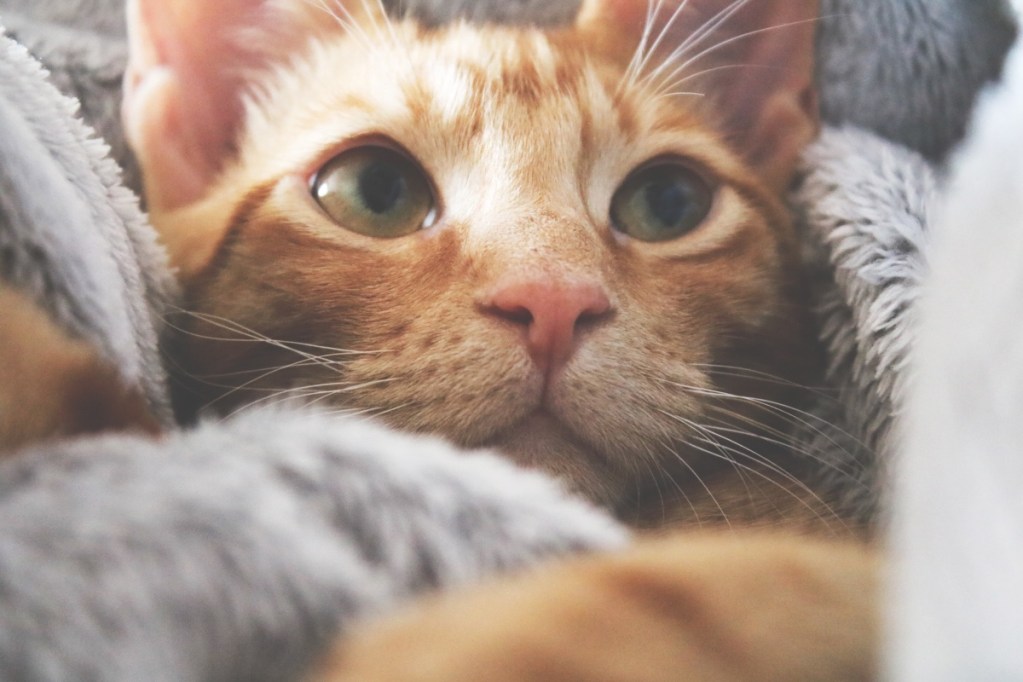
Items that will keep your cat cozy post-surgery
After cat surgery, your kitty may have limited mobility. They may have a cast or scarring or feel a little tired from any medications or drugs used during surgery. You’ll want to have items in your home and accessible to keep your cat feeling relaxed.
- A warm, dry bed. This item should be a no-brainer. What would you want to do after surgery? Probably chill in bed for a few days. A cozy bed allows your pet to rest and recover from their operation.
- Blanket. A blanket isn’t a must, but it can help your cat feel warmer, safer, and more inclined to stay put instead of trying to run and jump too soon.
- Elizabethan collar: Also known as the “cone of shame,” the Elizabethan-style collar is a staple item for post-cat surgery. It makes it hard for your kitty to scratch their face or lick or chew at post-surgical wounds. It’s typically made of fabric or clear plastic, and the vet should provide a standard one. However, you can look into cozier or fun ones (like an E-collar that looks like a lion for your little beast) for their comfort or your own amusement.
- Space heater. If you have a drafty home or your kitty’s favorite room tends to get cold at night, a space heater can keep them snug. Try to keep the space at room temperature to give the kitty a sense of normalcy — if it’s too hot, they may get uncomfortable, escape, and hide.
- Entertainment. YouTube is full of “Cat TV” videos with birds and chipmunks, so your cat won’t miss their favorite window perch too much.
Note: One important factor is ensuring your cat can get to all of their essentials, like food, water, and at least one litter box. It may mean moving items to ground level if your cat can’t climb stairs for a while.
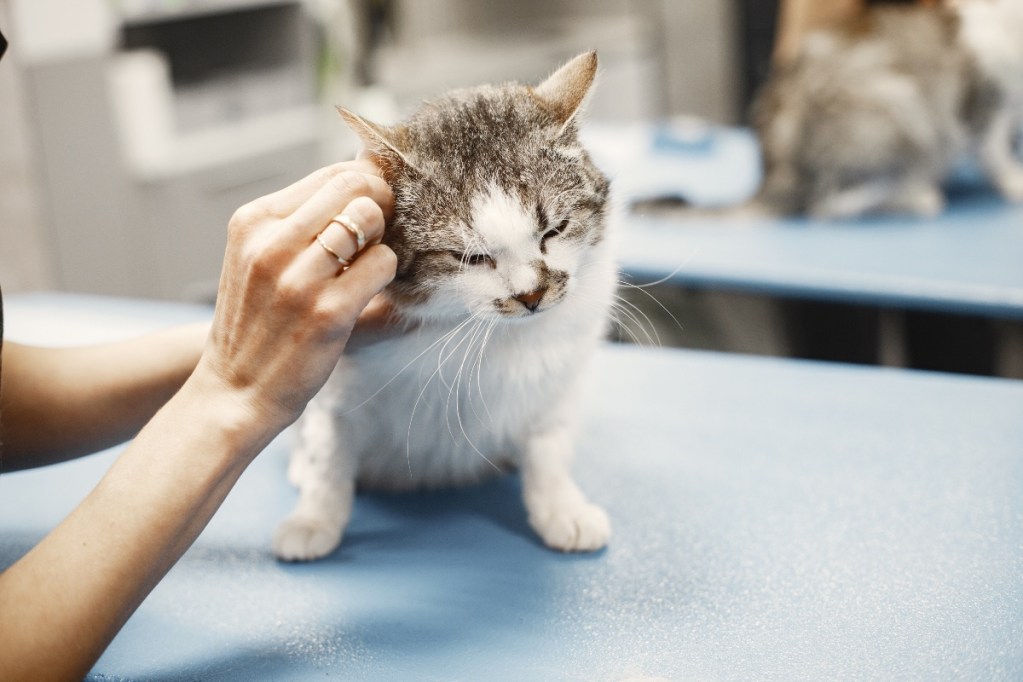
Follow discharge instructions
After cat surgery, it’s important to look at discharge instructions. These instructions may include common issues to look out for, what’s concerning, and what’s harmless. For example, a decreased appetite is normal cat behavior after spaying or neutering. The vet should also provide information on what a cat can and cannot do, instructions for changing bandages, and dosing and frequency of any post-surgery medication like pain reducers. Even if you feel like you read the instructions thoroughly, call your vet if you’re concerned about anything, such as your cat’s behavior after surgery. If nothing else, you’ll have peace of mind.
Surgery can be stressful on your cat — and you. Seeing them in pain is not fun, but it should be temporary. As their caretaker, you can make them feel more comfortable. Cozy beds, blankets, and space heaters can help them relax. Cat TV can keep them entertained. Be sure to follow discharge instructions and talk to your vet about concerns, such as common cat behavior after spaying — and what flags aren’t normal. If possible, use the time to cuddle your kitty a little tighter. Just having you nearby can give them a sense of normalcy, even when they aren’t feeling quite like themselves.

